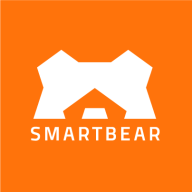

CucumberStudio and GitLab are both powerful software development tools. GitLab is favored for its extensive feature set, which justifies its price, while CucumberStudio is attractive for teams focused on behavior-driven development and collaboration.
Features: CucumberStudio focuses on enhancing team collaboration with features like shared feature files, rich reporting tools, and advanced behavior-driven development capabilities. GitLab provides a comprehensive range of DevOps features including a source code repository, continuous integration and continuous deployment pipelines, and robust security measures.
Room for Improvement: CucumberStudio could benefit from expanding its DevOps integration and enhancing its scalability for larger organizations. Its reporting tools, while robust, could offer more customization options. Additionally, further refinement in its automation connections would be valuable. GitLab, while comprehensive, could improve user-friendliness in areas outside its core functionalities. Enhancements in customer support scalability and more intuitive initial setup processes would be beneficial for users with less technical expertise.
Ease of Deployment and Customer Service: CucumberStudio's simple, cloud-based deployment facilitates easy setup and updates, emphasizing collaboration with strong customer service for timely support. GitLab offers flexible deployment options both in cloud and on-premises, requiring more setup for onsite installations, but benefits from a robust support infrastructure that provides quick problem resolution.
Pricing and ROI: CucumberStudio's straightforward and competitive pricing makes it a cost-effective choice for smaller teams or those prioritizing agile practices and collaboration, with enhanced ROI from swift implementation. GitLab involves a higher upfront cost but delivers significant ROI for larger enterprises due to its exhaustive capabilities that transform development processes and improve operational efficiency over time.
| Product | Market Share (%) |
|---|---|
| GitLab | 2.7% |
| CucumberStudio | 0.5% |
| Other | 96.8% |


| Company Size | Count |
|---|---|
| Small Business | 3 |
| Midsize Enterprise | 3 |
| Large Enterprise | 4 |
| Company Size | Count |
|---|---|
| Small Business | 36 |
| Midsize Enterprise | 10 |
| Large Enterprise | 46 |
Formerly HipTest: CucumberStudio is the leading collaboration platform for BDD - an easy-to-use tool to define ideas, test code, and learn in production from real-time insight.
GitLab offers a secure and user-friendly platform for CI/CD pipeline management, code repository control, and collaboration, enhancing development speed and efficiency. It facilitates automation with extensive customization and tool integration, ideal for DevOps processes.
GitLab supports source code management, version control, and collaborative development. It's frequently used in CI/CD processes to automate builds and deployments while integrating DevOps practices. GitLab allows companies to manage repositories, automate pipelines, conduct code reviews, and maintain development lifecycles. The platform supports infrastructure and configuration management, enabling efficient code collaboration, deployment automation, and comprehensive repository handling. Many organizations commit and deploy developed code using GitLab's capabilities.
What are GitLab's most valuable features?In specific industries, GitLab serves as a backbone for source code management and CI/CD implementation. Companies leverage its capabilities for infrastructure management and deployment automation, thus streamlining project delivery timelines. Its ability to handle configuration management and code repositories effectively aids in maintaining development lifecycles, making it a preferred choice for organizations committed to enhancing their DevOps practices.
We monitor all Rapid Application Development Software reviews to prevent fraudulent reviews and keep review quality high. We do not post reviews by company employees or direct competitors. We validate each review for authenticity via cross-reference with LinkedIn, and personal follow-up with the reviewer when necessary.